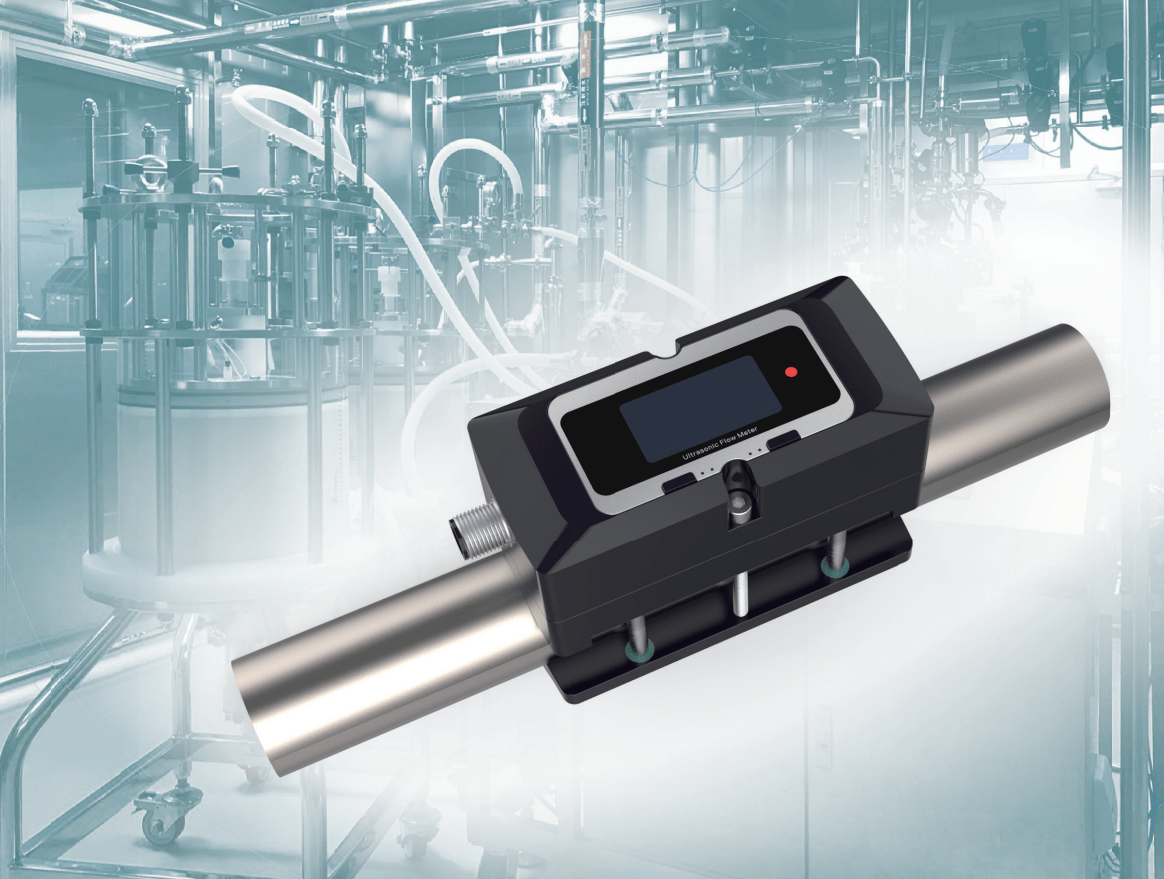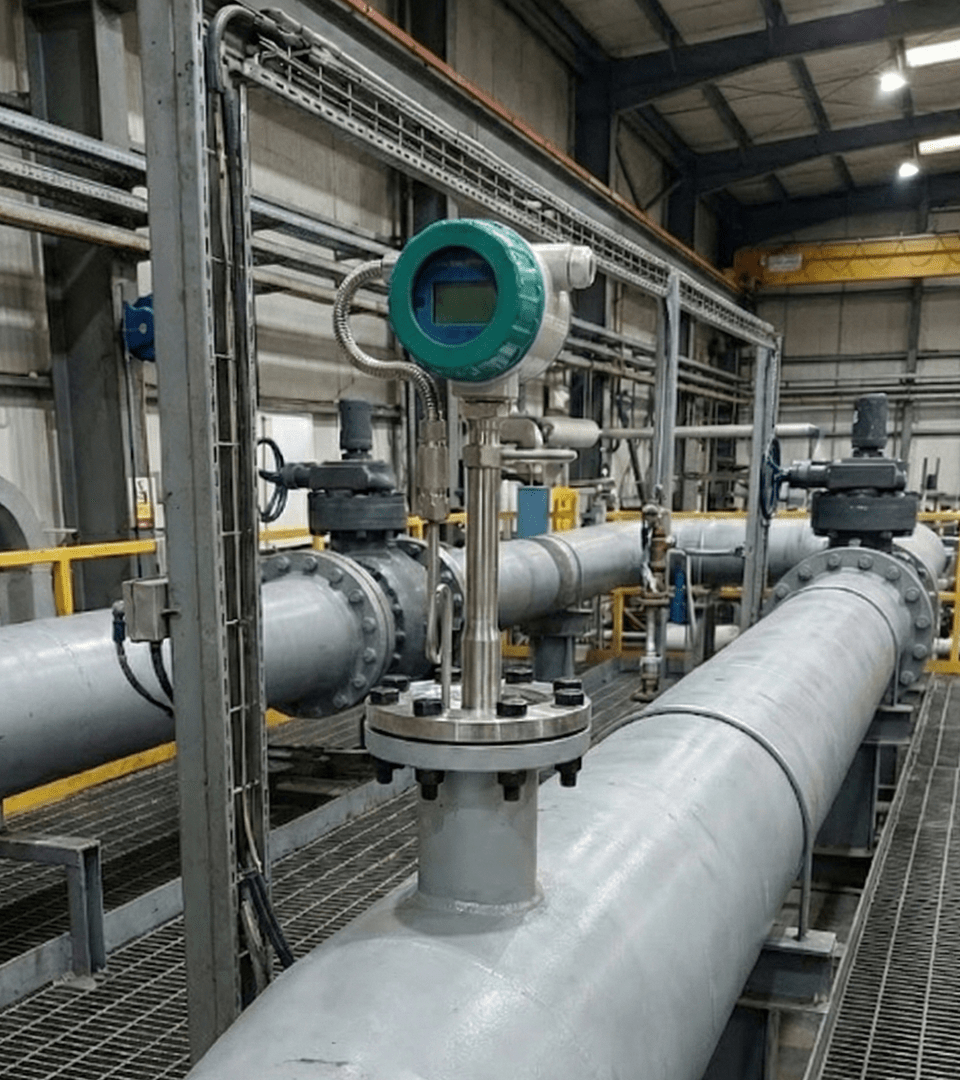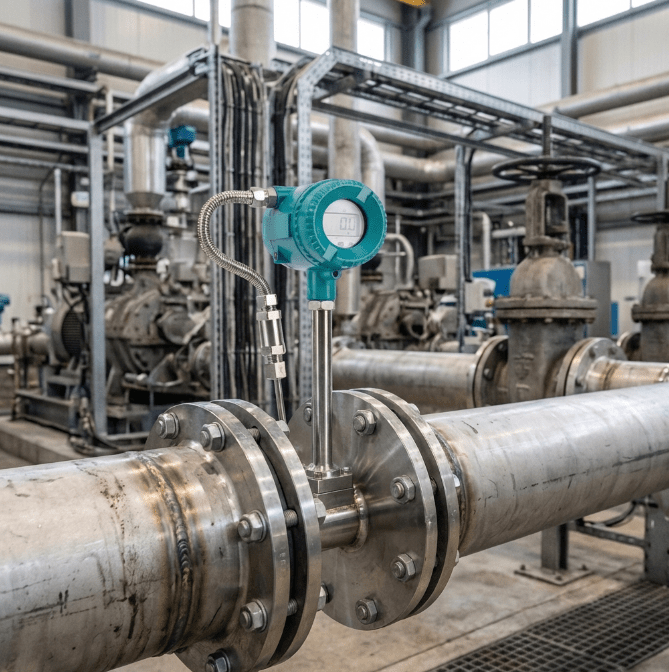Selecting the right flow meter for water applications is vital for accuracy and reliability.
A turbine flow meter utilizes a rotor or turbine within the unit to measure the flow of water as it moves through the pipe. As the water pushes the turbine blades, the rotation speed correlates with the flow rate, providing accurate measurements for varying application needs.
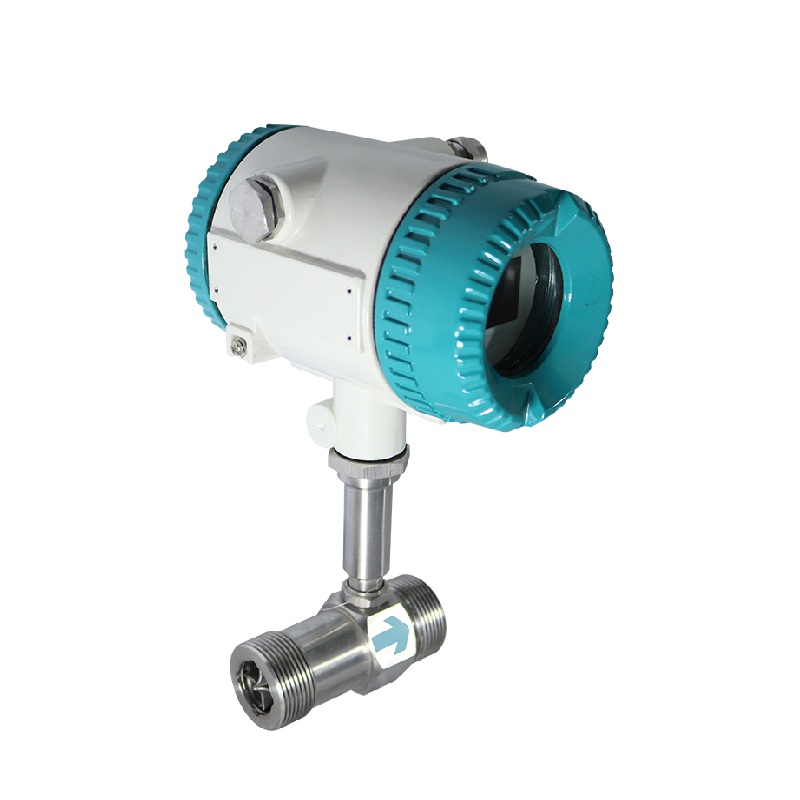
Turbine Flow Meter Functioning
Understanding its working principle helps in selecting a suitable device that aligns with operational requirements.
What Is a Turbine Water Meter?
Water metering made efficient with turbine technology.
A turbine water meter operates by using a rotor to gauge flow rate. Water movement turns the turbine, translating rotational speed into measurable data. Useful for applications requiring consistent monitoring and precise calculations.
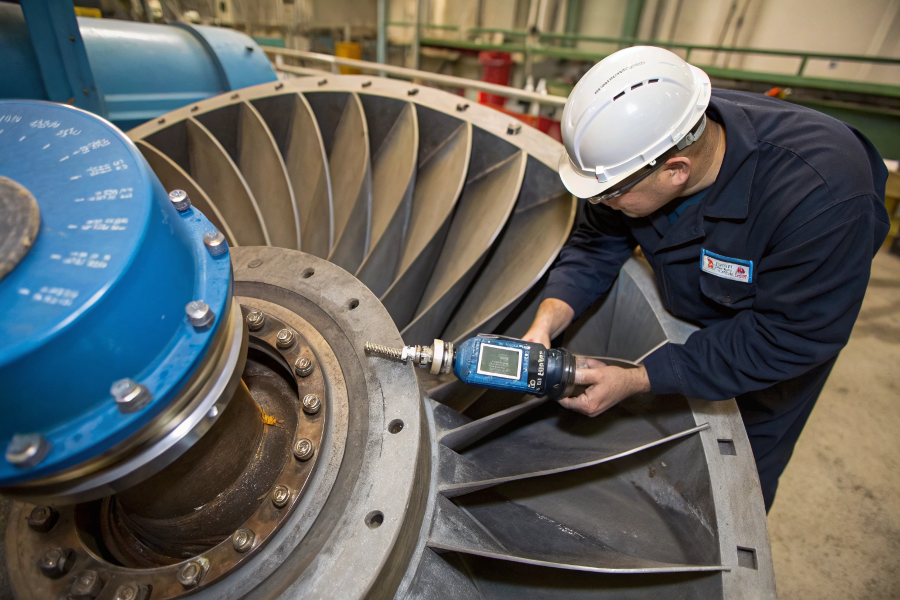
Turbine Meter Mechanism
Opt for turbine water meters in settings where precision and reliability are paramount, coupled with ease of maintenance.
What Are the Disadvantages of Turbine Flow Meter?
Every device has limitations—identify them for informed choices.
Turbine flow meters, while precise, face challenges with low flow scenarios and clogging from impurities. Their moving parts are susceptible to wear, leading to frequent maintenance and potential downtime. These meters require stable flow conditions to maintain accuracy.
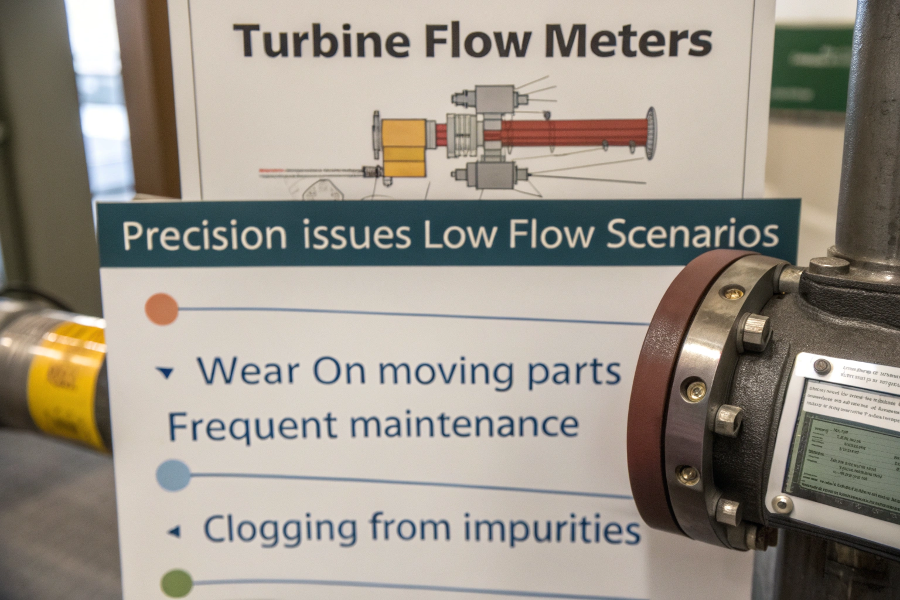
Turbine Meter Limitations
Knowing these downsides facilitates better decision-making and appropriate technology scouting for specific needs.
How Accurate Is a Liquid Turbine Flow Meter?
Accuracy is a cornerstone of turbine flow meters.
Liquid turbine flow meters are known for their high accuracy, typically within 0.5-1% of reading. However, factors like flow profile disruptions and fluid properties can affect reliability. Calibration helps maintain precision over time and under varying conditions.
Regular maintenance and calibration checks are vital for maintaining the meter’s accuracy in real-world applications.
Which Type of Flowmeter Is Used for Measuring Water Flow?
Assess options among flow meters for water applications.
Various types are suited for water flow measurement, including turbine, ultrasonic, and magnetic meters. Each offers unique advantages—turbine for low-cost and simplicity, ultrasonic for non-intrusive reading, and magnetic for reliability in conductive fluids.
Choosing the right meter requires examining budget constraints, accuracy needs, and application conditions thoroughly.
Conclusion
Turbine flow meters are effective for water applications, offering precision and cost-efficiency. Disadvantages include wear and flow challenges, but regular maintenance ensures accuracy and reliability.

